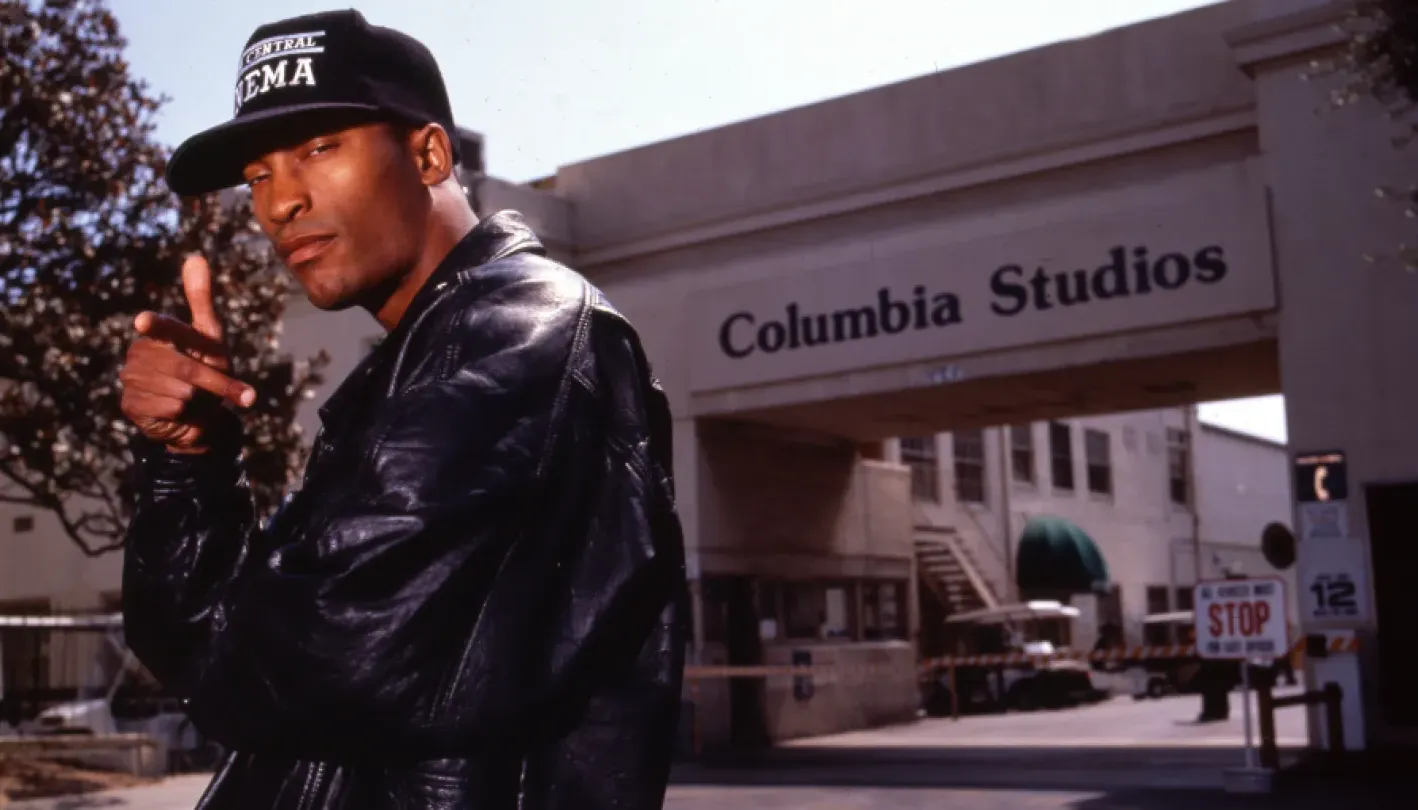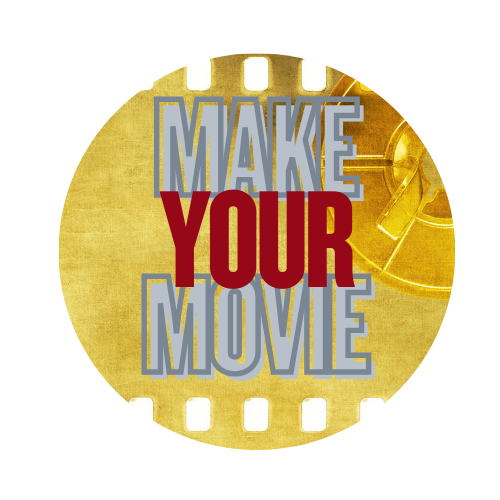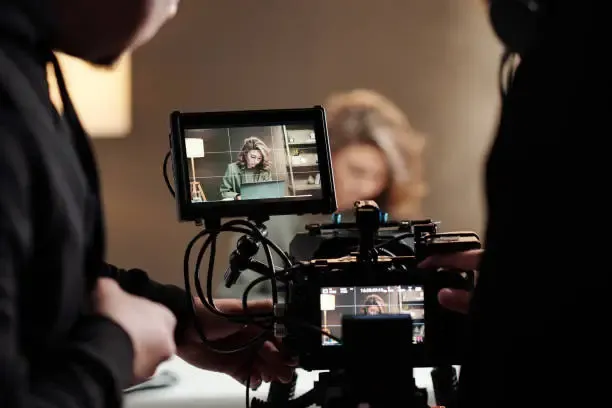🎬 Sh*t I Should’ve Done #1: Been Prepared to Pitch John Singleton
Oct 13, 2025
The moment I realized I fumbled a once-in-a-lifetime shot at John Singleton — and what that taught me about readiness and timing.
Back in the 90s, when I was just starting out, I was a full-time PA working at Barden Cablevision in Detroit, Michigan. I worked in the Ad Sales department. We produced local commercials for auto dealers, furniture stores, and the occasional late-night televangelist. It wasn’t glamorous, but I was learning, and this was putting me one step closer to realizing my dream.
The dream was to make movies. I loved working at Barden; I made lifelong friends there. Years later, it would lead to my first staff job as a producer/director and my first award for producing. But Cablevision was far from my dream of Hollywood. Then one day, my father (RIP), also my biggest supporter, decided I needed to go to Los Angeles for a week to introduce myself to Hollywood, expecting that they’d welcome me with open arms. Spoiler alert — that didn’t happen.
However, he was serious about the trip. He bought me a ticket to California. One week in Los Angeles. No connections. No plan. Just dreams, a script, and the kind of confidence only delusion or destiny can give you.
The Script That Should’ve Stayed in the Drawer
I had written a script on my word processor (yes, I’m that old and proud of it). The script was bad, bad, bad. It was poorly written, with tons of misspellings that I did not take the time to proofread or have anyone else do, for that matter. But I was proud of it. I had somehow gotten the contact information for John’s production office. He had a deal with Columbia Pictures and his office was on the Sony Pictures lot in California. I don’t even remember how — maybe a crew list, maybe a friend of a friend. But back then, I took note of everything and anything that I came across if it might lead to an opportunity (still do).
So, I mailed the script — unproofed, unsolicited, and full of ambition — to John Singleton, fresh off Boyz n the Hood, prepping his next film (Poetic Justice, if I remember correctly). And waited for the phone call that never came.
The Arrival
In the meantime, I landed in L.A. My first stop after checking into the hotel? The city bus. I rode all around the city, past studio lots and landmarks I’d seen on TV, excited like a kid outside a candy store. Giant movie posters — larger than life. I even did the Universal Studio Tour and saw the façade of the “Psycho” House. I didn’t know what I was doing, but it didn’t matter. I had arrived.
This was before social media, Google Maps, or meetups — no map of networking spots, no DMs to slide into. You had to figure it out by walking, asking, guessing.
After a couple of days of aimless inspiration and light panic, I finally mustered the nerve to call Singleton’s office. The person I spoke with, who I think was the production coordinator, was kind, patient and explained, “Sorry, we can’t accept unsolicited scripts. We’ll mail it back.” I said thank you, hung up, and sat there deflated… for about five minutes. Then I said, well, I didn’t come all this way for nothing — it’s not gonna end there.
 (more recent photo of Sony Pictures)
(more recent photo of Sony Pictures)
The Break-In (Kind of)
I got myself together and headed straight to the Sony lot. Now, if you’ve ever been on a studio lot, you know the drill: you don’t just stroll in. You need a badge, your name on the list, or a contact. I had neither, but confidence is a hell of a key.
I walked up to that guard shack like I belonged. “Hi, I’m Nicole Sylvester — I have an appointment at John Singleton’s office.” I gave him the name of the person I spoke with over the phone. The guard didn’t even blink. “Oh yeah? I’m headed that way. I’ll walk you over.”
My heart was pounding. I smiled and nodded like this happened all the time. Inside I was thinking, What the heck am I going to say when I get to the office and he announces me?
Halfway there, someone radioed him to handle another situation. He said, “You know where you’re going, right?” “Oh yeah,” I lied.
And just like that, I was inside Sony Pictures. God was definitely smiling down on me.
I wandered through hallways until I spotted a door labeled New Deal Productions — Singleton’s company. I could hear voices, laughter, women chatting — and when I peeked in, I saw a group of Black women working. A couple of them I thought I recognized from a photo in an article (or book) that John had written about the women behind the scenes on his team. My heart swelled. I had arrived.
I asked for the production coordinator. One of the women smiled and said, “Next door.”
That’s when I met him — the Production Coordinator, calm and gracious.
My opening line:
“I know you said you’d mail the script back, but since I’m in town, I thought I’d pick it up in person.” nice, right?
He paused, smiled, and told me to wait. A few minutes later, he came back with my script in hand, and I don’t remember exactly what he said, but the essence was, “You know, that took guts. Not many people would show up in person like that.”
Then he said, “Hold on — I want to introduce you to someone.”
Cue my inner soundtrack: dream-sequence violins, please. Spoiler alert — it was not John Singleton.
The (Not-Quite) Meeting
He introduced me to one of John’s producers. This was the moment. My heart was in my throat, and I was so caught up in the excitement of “having made it” that my mind went blank.
The coordinator recapped my story: young filmmaker, bold, persistent, made it all the way from Detroit. The producer gave me that “Okay, kid, you got moxie” smile — half impressed, half skeptical. And then he waited for me to speak.
And that’s where everything fell apart.
I started rambling (like that woman in Coming to America talking to the Eddie & Arsenio characters about her dreams). “I’m a director — I wrote this script — it’s really good — I want to direct it — I love movies — I want to make movies, blah, blah, blah…”
It was like watching a car crash in slow motion — and I was the driver.
He listened politely, nodded, then said the line I now know as the Hollywood kiss-off: “Okay, well, have your agent or lawyer resubmit, and we’ll take a look.”
I thanked him, shook hands, and walked out beaming like I’d just booked the gig of a lifetime. I thought I nailed it.
But wait, it gets better (or worse).
The Fake Agent
Back in Detroit, I replayed every detail like a movie montage. The problem? I didn’t have an agent or lawyer. I hadn’t done anything worthy of having an agent. I hadn’t even made my first short film yet.
But I did have a creative friend who said, “I’ll pretend to be your agent.”
Mind you, that might sound crazy today, but there are stories littered through Hollywood folklore of people pretending to be their own agents and getting work.
I thought it was a great idea. So we did it.
She made one call. We both sounded ridiculous — neither of us had enough industry experience to “talk the talk”. The jig was up immediately. I knew it, she knew it, and probably the receptionist did too.
I never called them again. That was the end of my first “Hollywood hustle.”
The Lesson
Here’s where the sht I should’ve done* comes in.
I actually played everything right up until the moment I opened my mouth. I showed courage, persistence, and initiative — the kind of traits that do get people noticed. But when it mattered most, I didn’t know what to ask for.
I was so busy pitching myself as a director — to the team of a director who already had his own scripts — that I missed the actual opportunity sitting right in front of me.
What I should’ve done was pitch myself as a PA or assistant — someone willing to learn, work hard, and be a part of that creative environment.
Here’s what I wish I’d said that day:
“I know I’m not ready to direct yet. But I’m smart and resourceful — I got myself from Detroit to this office because I’m serious. I’ll work hard, I’ll learn fast, and I’ll make myself an asset to your team. Are there any opportunities that I can contribute to, even as a PA or intern?”
If I had said that, I genuinely believe the producer would’ve given me a shot. If not a job, at least an introduction. Maybe an internship. Maybe a recommendation.
Because that’s how it works: one name passed along to another. One person remembering your hunger. That’s how doors open.
The Follow-Up I Never Made
The second mistake? I never followed up. Not with the producer. Not with the coordinator. Not even with a thank-you note.
Having been a production coordinator myself years later, I now know: when someone young and hungry shows up with initiative, you remember them. You root for them. Sometimes, you pass their name to someone else.
That coordinator was gracious (I really wish I knew his name), kind, and clearly impressed. If I had kept in touch every few months, maybe — just maybe — I would’ve landed my first studio gig through him.
But I didn’t. I went home, chalked it up as a fun Hollywood story, and moved on.
Full Circle
Years later, I did meet John Singleton (that’s a story for another day). Spoiler alert — I never did work with him. But by then, I had directed, produced, and earned my stripes. I never forgot that first encounter — the near miss that taught me the difference between ambition and preparedness.
Because here’s the truth: sometimes you do kick the door open… but you better have something worth saying when you get inside.
I wasn’t ready. Not then. But that experience (and a few others — more to come) shaped how I approached every opportunity. Every meeting, every pitch, every “accidental” encounter on a festival floor.
I learned to prepare like the door will open — because sometimes it does.
🎥 Takeaways (For You, Fellow Filmmakers)
1.Be hungry, but be strategic.
Confidence opens doors; preparation keeps you inside.
2. Know what to ask for.
If you’re not ready to direct, that’s fine. Offer to assist, shadow, intern, learn.
3. Follow up — always.
A simple thank-you note can turn a “no” into a “not yet.”
4. Don’t fake reps.
Hollywood’s small. Authenticity travels further than pretending you’ve made it.
5. Never confuse proximity with opportunity.
Getting in the room is step one. Knowing what to do once you’re there — that’s mastery.
So yeah — Sht I Should’ve Done #1:* Been prepared to pitch myself to John Singleton. Because sometimes the universe says yes… and you’d better be ready.
Yours in Filmmaking,
–Nicole
(Want more filmmaker confessions and micro-budget wisdom? Subscribe or join the Movie Making Masterclass at MakeYourMovie.today)
P.S. I talk about all this and more in my Movie Making Masterclass. If you’re ready to produce your own film — with a little less guessing and a lot more guidance — check it out.
🎬 The Filmmaker Starter Pack
A FREE cinematic toolkit to kickstart your first feature-including Nicole Sylvester's funding guide, microbudget video replay, templates, and live consultation access.
When you sign up for a resource, I'll also send you email updates on my latest blog posts, VIP content and the occasional product recommendation. Of course, I will always respect your privacy and data.

